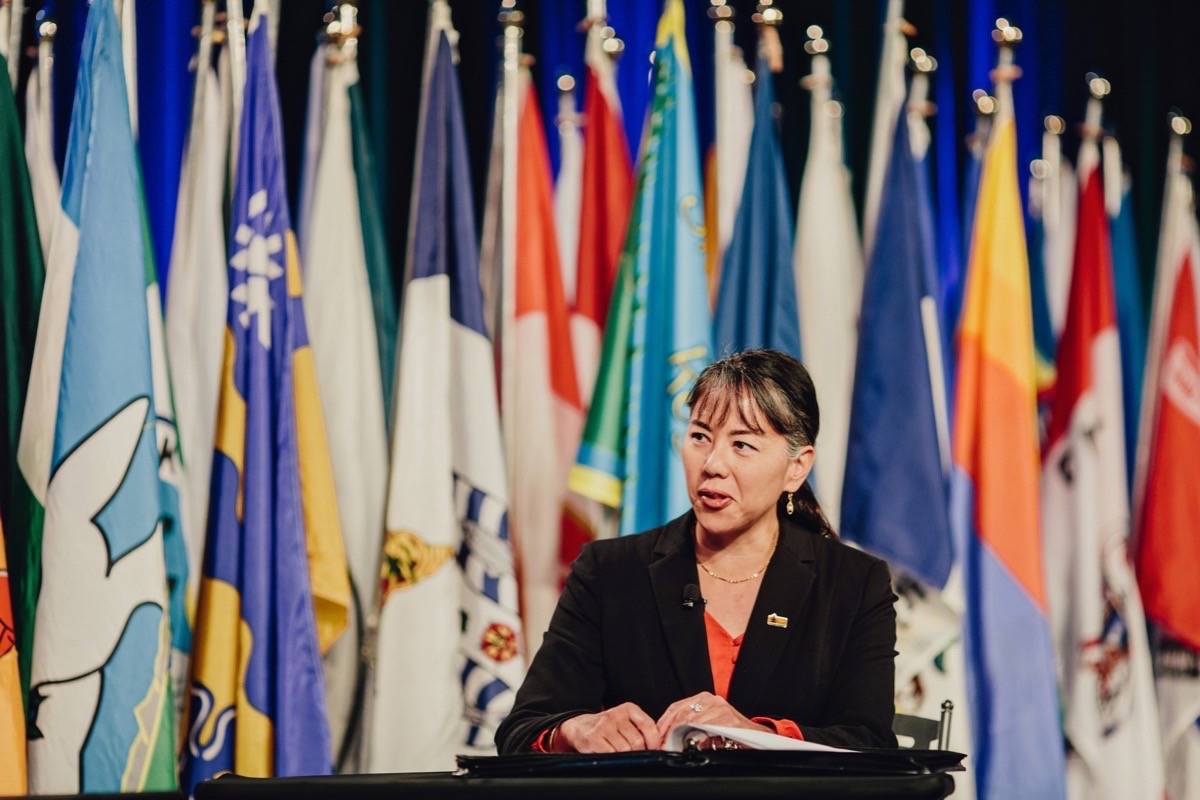B.C. local government leaders have voted almost unanimously at their annual convention to call on the province to start sharing legal cannabis revenues with them, as Alberta, Ontario and Quebec have done.
Sooke Mayor Maja Tait, outgoing president of the Union of B.C. Municipalities, was visibly frustrated as she introduced the executive’s now-annual resolution on cannabis revenue sharing. She cited sales and tax figures that show B.C. is reaping millions from its monopoly wholesale and tax revenues as cannabis stores continue to open in communities around the province.
The latest data suggest previous claims by Finance Minister Carole James that B.C. is still losing money on legal cannabis due to its regulatory and enforcement costs are out of date.
“Notably, during the most recent fiscal year, the province collected $14.4 million in excise tax revenue, more than double its projection,” Tait told delegates at the convention Sept. 23. “This current fiscal year, the province expects to collect more than $90 million in revenue from the excise tax, and the additional 15 per cent [wholesale] markup as it applies to cannabis. If this continues, the province’s cannabis-related revenue will exceed costs by a large margin.
“This is the fifth year in a row that our membership has considered this resolution, looking for an equitable share of the revenue. It’s time for them to show us the money.”
Approved: (SR2) Cannabis Taxation Revenue Sharing: calling on the Province to sign a cannabis taxation revenue sharing agreement with local governments. #UBCM2020 pic.twitter.com/heHeDK4ATW
— UBCM (@UBCM) September 23, 2020
The 99-per-cent vote in favour was cast by phone or online, as the convention is being broadcast from an almost empty Victoria Conference Centre due to COVID-19 restrictions. B.C. cabinet ministers would normally be hosting hundreds of meetings with local mayors and councillors to hear their concerns directly, but that was abandoned as NDP leader John Horgan called a surprise election on Monday as the convention got underway.
RELATED: Cannabis retailers call for change in B.C. legal sales
RELATED: ‘B.C. Bud’ still underground, Horgan hopes to save it
Tait noted that Ontario has already provided $40 million to local governments, which are dealing with declining business taxes, transit fare revenues and other impacts of the pandemic.
“In B.C., UBCM’s request to negotiate a revenue sharing agreement has been repeatedly declined,” Tait said. “We were asked to prove our costs, so last year we administered a survey to quantify local costs. Survey data, when extrapolated, showed an expected $11.5 million per year in local government incremental costs for the first three years following cannabis legalization.”
Those costs include cannabis enforcement by police and bylaw officers, land use planning, licensing and other duties.
@tomfletcherbc
tfletcher@blackpress.ca
Like us on Facebook and follow us on Twitter.

